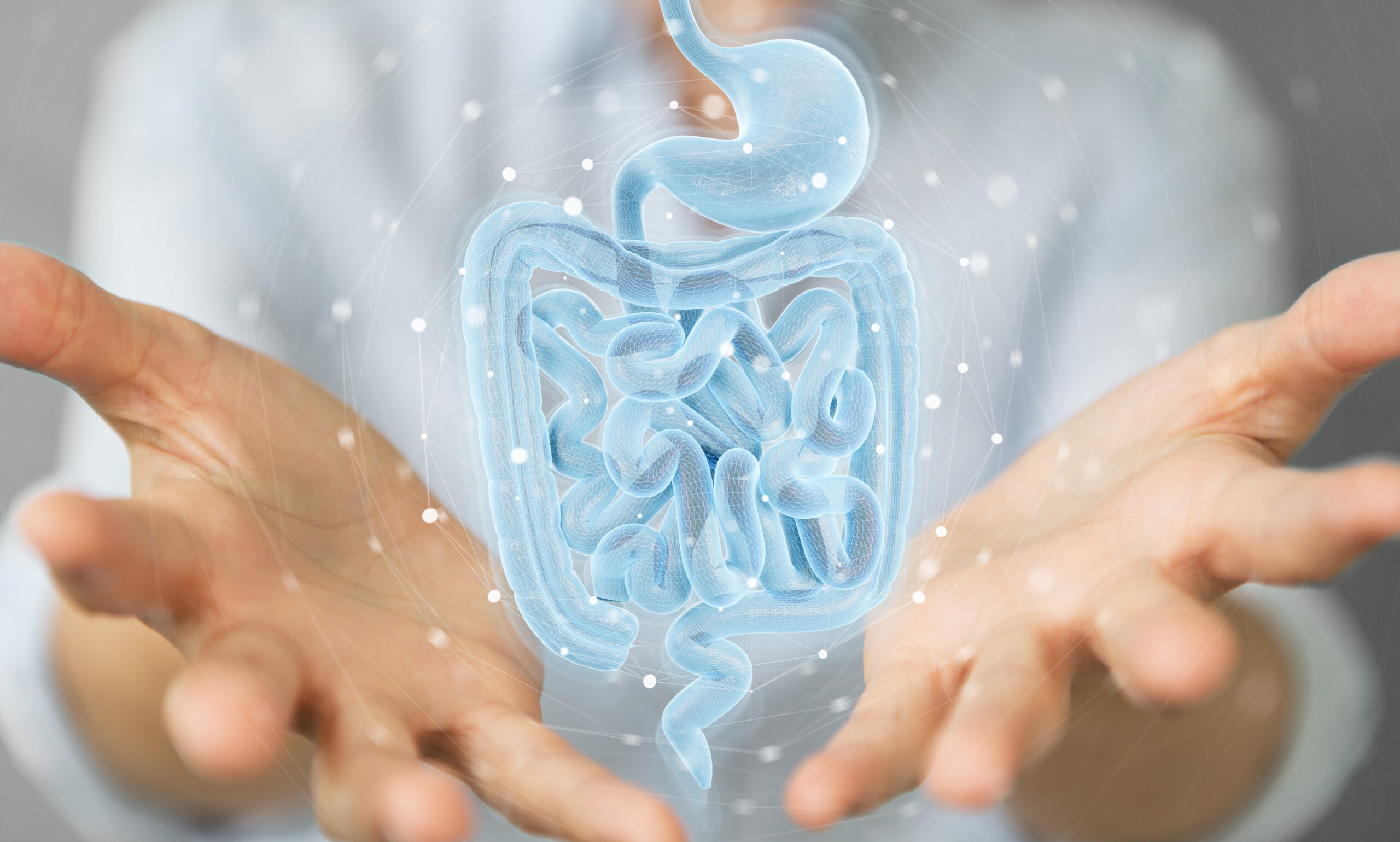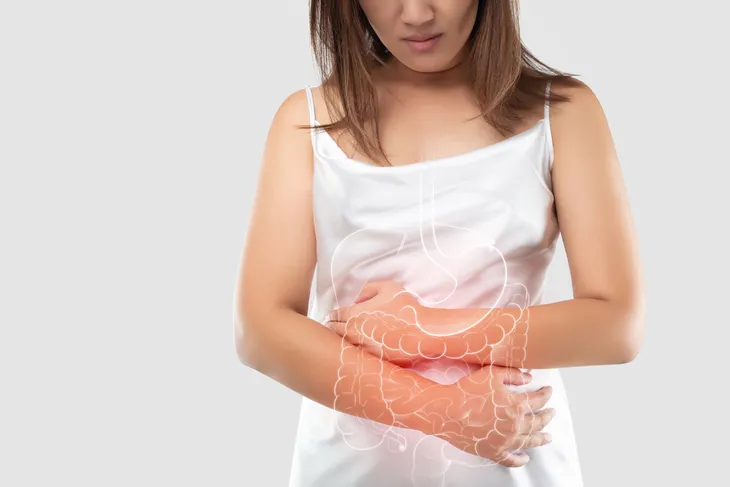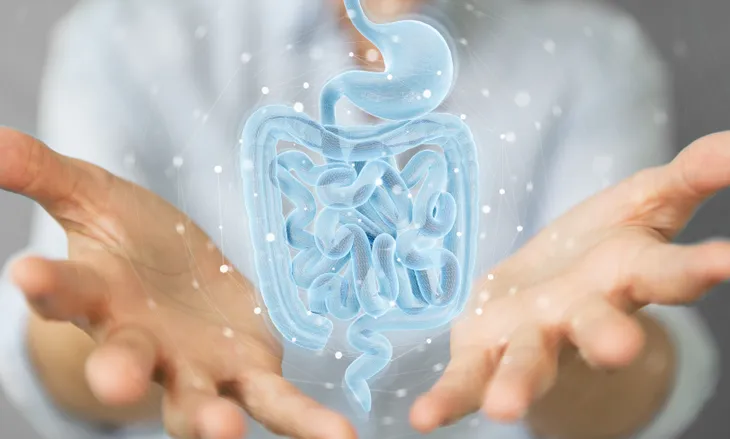Crohn’s disease is a chronic inflammatory bowel disease (IBD) that causes inflammation in the digestive tract. The condition can vary in severity, from mild to debilitating symptoms.
It’s estimated that 3.1 million adults in the United States have some form of IBD, which includes Crohn’s. Research shows that there has been a significant increase in these diseases since the end of World War II, with rates steadily increasing in the U.S. over the last 10-15 years. Here’s a look at what you need to know about Crohn’s disease, including the common symptoms, causes, and treatment options.
What Is Crohn’s Disease?
Crohn’s disease is an inflammatory bowel disease in which parts of the digestive tract become inflamed. This condition is chronic, can present as mild or severe, and symptoms can change over time. Most often, Crohn’s disease affects the end of the small bowel (ileum) and the beginning of the colon. However, the condition can impact any part of the gastrointestinal tract, anywhere between the mouth and anus.
The condition was named after gastroenterologist Burrill Bernard Crohn. In 1932, Crohn and his two colleagues, Dr. Leon Ginzburg and Dr. Gordon D. Oppenheimer, described the disease after finding a pattern in several patients who presented with inflammation of the small intestine.
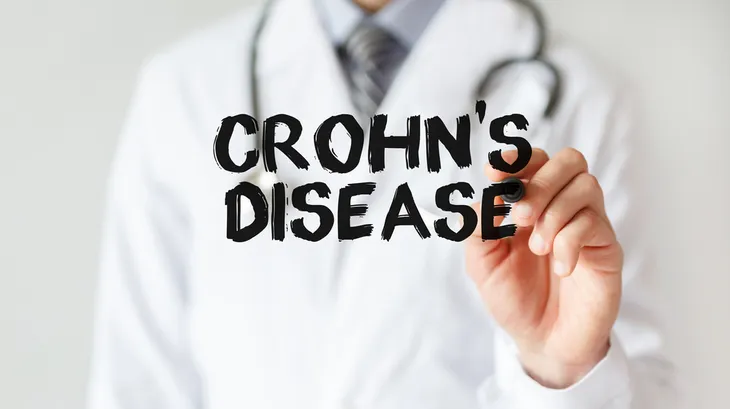 Shutterstock/Michail Petrov
Shutterstock/Michail PetrovCauses of Crohn’s Disease
It’s still unclear what exactly causes Crohn’s disease, although there is some evidence to show that genetics and a person’s immune system can play a role. Between 1.5- and 2.8-percent of people with IBD have a close family relative, such as a parent, sibling, or child, with the condition. However, while genetics can increase your chances of having Crohn’s disease, it’s still impossible to predict it based on family history alone.
Another potential cause of Crohn’s disease is an autoimmune problem when the immune system mistakes healthy microbes in the body and starts attacking them. This leads to inflammation in the digestive tract and other symptoms of Crohn’s disease.
Environmental Causes
Environmental factors are unlikely to cause Crohn’s disease on their own. However, there is some evidence that environmental factors can increase a person’s risk of developing the condition.
The environmental factors that have been linked to Crohn’s include:
- Certain microbes
- Smoking
- Substances from something you’ve eaten
- Living in urbanized societies
- A high-fat diet
- Taking non-steroidal anti-inflammatory drugs
These environmental and lifestyle factors can either trigger an immune system response that never stops or damages the lining of the intestines, which in turn triggers Crohn’s disease. Much is still unknown about these factors though.
Who’s At Risk
The condition can develop at any age, but most people are first diagnosed between the ages of 20 and 30. People from all ethnic backgrounds can have Crohn’s disease, although the condition is most common in Caucasians. In recent years, there have been increasing disease rates in Asian and Hispanic people, though the reason remains unclear.
Men and women are equally at risk for Crohn’s disease and, contrary to popular belief, diet does not cause the disease, though it can trigger the onset of symptoms.
Common Symptoms
Crohn’s can be challenging to diagnose because the symptoms can sometimes be explained away as food allergies or food poisoning. However, if you have these symptoms frequently, it could be a sign of a more significant health issue.
Crohn’s disease can present itself differently depending on the individual and which area of the gastrointestinal tract is affected.
Some common symptoms include:
- Stomach cramps
- Bloody stool
- Fatigue
- Fever
- Diarrhea
- Constipation
- Night sweats
- Urgent or frequent bowel movements
- Drainage from a sore near the anus
- Feeling like you still have to go even after a bowel movement
- Decreased appetite
- Weight loss
- Skin and joint inflammation
- Anemia
- Irregular menstrual cycle
- Eye redness or eye pain
 Andreas Poertner / Shutterstock
Andreas Poertner / ShutterstockSevere Symptoms
Most individuals with Crohn’s disease develop the common symptoms listed above. In more severe cases, the disease can lead to serious and potentially life-threatening symptoms including:
- Blockages in the intestine
- Infections
- Chronic pain
- A persistent fever
- Perianal fistula
- Ulcers anywhere from in the mouth all the way to the anus
- Kidney stones
- Malnutrition
Having severe symptoms doesn’t mean they’ll last forever. People with Crohn’s disease can experience a gradual onset of symptoms or a sudden dramatic shift in which the symptoms appear all at once and intensely. Some individuals with the condition will experience periods of remission in which their symptoms seem to stop or decrease in severity.
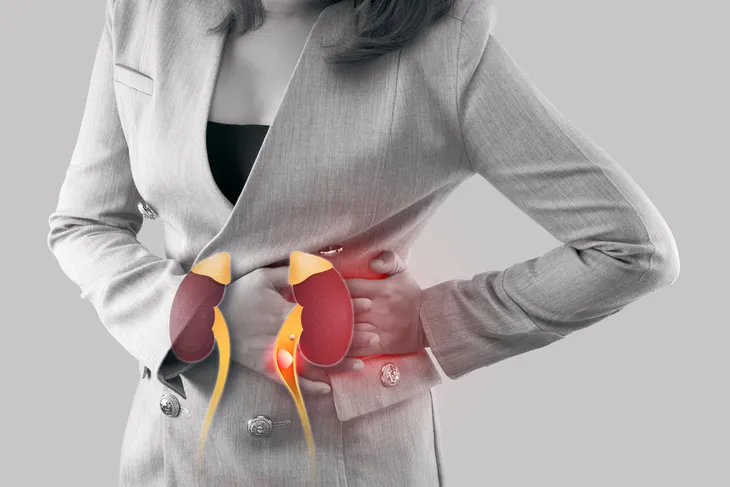 Shutterstock/Emily frost
Shutterstock/Emily frostTreating Crohn’s Disease
There is no known cure for Crohn’s disease, but treatment can help people lessen and manage their symptoms. The type of treatment a patient receives will depend on the type of symptoms they’re experiencing, as well as the severity. Medication is the most common treatment option, although surgery, dietary changes, bowel rest, and natural remedies are also possible options.
A variety of medications are used to treat Crohn’s disease symptoms. The medication depends on what area of the digestive tract is affected and the symptoms. Anti-inflammatory drugs, immunomodulatory, and antibiotics are all common. But ultimately, your doctor will help you determine the best course of action.
Surgical Options for Crohn’s Disease
Surgery is often used as a treatment option when medications have not worked or stopped working. It’s estimated that up to 75-percent of people with Crohn’s disease need surgery at some point, with some cases being optional and others a necessity.
Potential surgeries include:
- Removing damaged sections of the digestive tract
- Repairing damaged tissue
- Managing scar tissue
- Treating deep infections
All surgeries come with some form of risk, including infections and complications. For this reason, doctors will not jump straight to surgery as the initial treatment option for a patient unless it’s absolutely necessary.
Diet Options
Since Crohn’s Disease is a digestive tract condition, there’s some belief that diet can play a role in relieving some of the symptoms associated with the condition. As mentioned, a high-fat diet is one of the potential triggers of the onset of Crohn’s disease. While food on its own probably isn’t entirely to blame for the development of Crohn’s, poor diet choices can cause symptom flare-ups.
Doctors may prescribe specific diet changes to manage symptoms, including:
- Adjusting fiber intake
- Limiting fatty foods
- Reducing dairy
- Drinking plenty of water
Diagnosis
There isn’t a standard test you can take that will definitely tell you if you have Crohn’s disease. Instead, it’s typically a process involving several medical tests to rule out other potential explanations. Your doctor will likely order exams, lab tests, and imaging studies to confirm the correct diagnosis. Individuals suspected of Crohn’s disease are typically sent to a gastroenterologist for further testing, diagnosis, and treatment.
Not only do doctors want to ensure they’re correctly diagnosing Crohn’s disease, but they also want to confirm which part of the digestive tract is affected by the condition.
When to See a Doctor
As symptoms can vary, it can be challenging to know when to see a doctor. Consistent changes in your bowel movements or habits are a good reason to book an appointment with your physician. If you’re experiencing reoccurring symptoms that could be associated with Crohn’s disease, it’s definitely important to see your doctor quickly.
Ignoring the problem won’t make it go away and can potentially allow symptoms to escalate. Your doctor can help you confirm your suspicions or find another cause, and work with you on a treatment plan.
Life with Crohn’s Disease
Receiving a Crohn’s diagnosis can be difficult since it’s a chronic condition, but treatment can make a big difference. No one has to suffer through their symptoms, regardless of whether they are mild or severe.
Early intervention can help you maintain an adequate quality of life as you manage this condition. Individuals with Crohn’s Disease can still live happy, healthy lives with minimal disruption from the condition.
